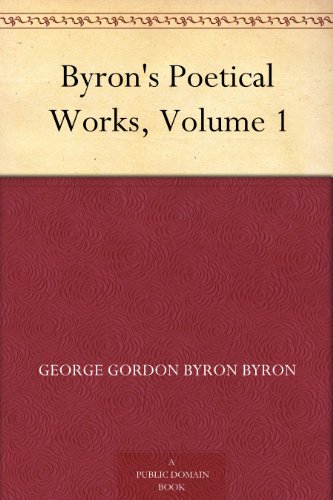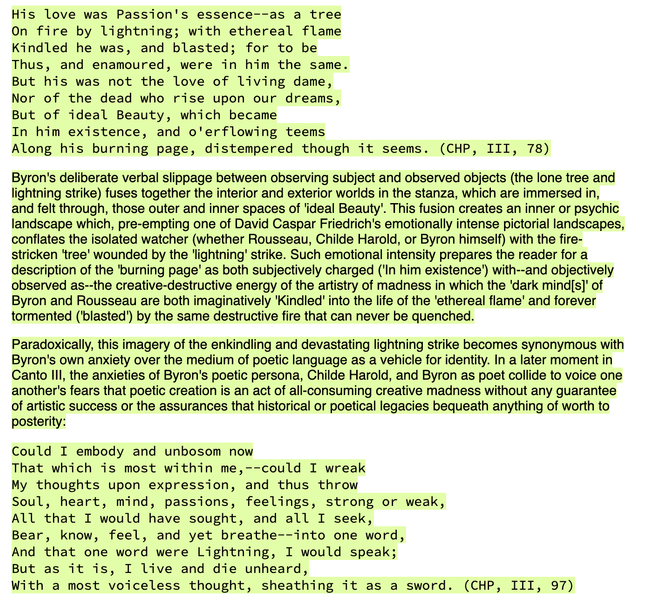Sublime
An inspiration engine for ideas

According to Goethe, Byron’s poetical power eclipsed all other mortals, and he was not held back by petty morality, being possessed of a virtue of which the bourgeoisie had no conception.
Alan Cardew • Lord Byron: The Perils and Glories of a Classical Education

Lord Byron (1788-1824) incarne le paradoxe du poète rebelle, du paresseux révolté, du révolutionnaire décontracté. Son premier recueil de poésie publié en 1807 lorsqu’il avait 19 ans et étudiait au Trinity College à Cambridge s’appelait Heures de paresse. C’était un aristocrate, un riche oisif. Cependant,
tom Hodgkinson • L'art d'être oisif: ... dans un monde de dingue (LIENS QUI LIBER) (French Edition)
Byron Shelley was a poet.

Byron never traveled without his menagerie of “eight enormous dogs, three monkeys, five cats, an eagle, a crow, and a falcon.” Other times he traveled with peacocks, an Egyptian crane,
Charlotte Gordon • Romantic Outlaws
Fragment of a Novel - Wikipedia
en.wikipedia.org